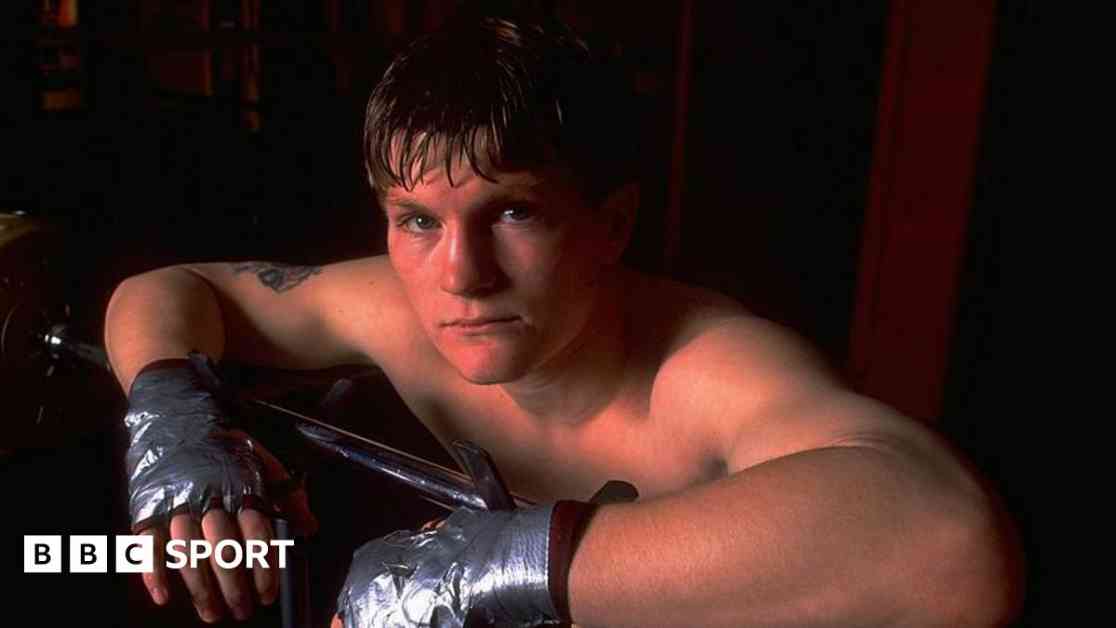Ricky Hatton and the Heartbreak of Manchester
It’s a regular Thursday at the Cheshire Cheese pub in Gee Cross, where locals gather to chat and have a drink. This is one of the places where Ricky Hatton, the legendary boxer, used to frequent. The pub continues to buzz with activity, just as Hatton would have wanted it.
Just a short walk away is The Heartbreak, Hatton’s home, named after Elvis Presley’s Heartbreak Hotel. Fans and friends visit to pay their respects, leaving behind flowers, Manchester City shirts, boxing gloves, and other tokens of appreciation. Among the mourners are Trev and his wife, Sue, who remember Hatton’s generosity in raising funds for a charity supporting Sue’s late son.
Hatton, a two-weight world champion, was a true Mancunian who never forgot his roots. Raised in a council estate in Hattersley, he remained connected to his community until his untimely death at 46. He put Manchester on the map in the boxing world, becoming a hero not just locally, but nationally and internationally too.
The Rise of ‘The Hitman’
Paul Dunne, a coach at Sale West ABC, remembers the early days when a young Hatton walked into his boxing club. Hatton started his boxing journey at Louvolite Gym in Hyde under the guidance of Ted Peake. Boxing reporter Steve Lillis recalls the excitement surrounding Hatton’s amateur career, leading up to his ABA title win in 1997.
Despite humble beginnings, Hatton’s popularity soared as he transitioned to the professional ranks. Promoter Frank Warren recalls Hatton’s early fights with minimal ticket sales, but as he continued to win, his fan base grew. He shared the ring with other Manchester boxers like Anthony Farnell and Michael Gomez, further solidifying his status as a local hero.
Manchester’s Pride and Joy
As Hatton’s boxing career flourished, Manchester was experiencing a cultural renaissance. Rock band Oasis and football club Manchester United were at their peak, while Hatton was making waves in the boxing world. The opening of the Manchester Arena provided a stage for Hatton’s epic fights, with the venue becoming his fortress.
One of Hatton’s most memorable victories was against Kostya Tszyu in 2005, where he clinched the IBF title. The win not only solidified his legacy as a world-class boxer but also brought Manchester City supporters something to celebrate during a challenging period for the club. Hatton’s impact extended beyond the ring, shining a light on Manchester’s sporting prowess.
A Man of the People
Despite his fame and success, Hatton remained grounded and connected to the people of Manchester. His down-to-earth nature endeared him to fans from all walks of life, regardless of their football allegiances. Hatton’s association with Manchester City drew admiration from both City and United supporters, showcasing his ability to unite the city through his achievements.
Hatton’s Legacy Lives On
Ricky Hatton’s legacy transcends his boxing accolades, as he was a passionate advocate for charitable causes and mental health awareness. His impact on the community and the sport of boxing is immeasurable, with his fanbase being his greatest achievement. As plans for a foundation and memorial in his honor take shape, Hatton’s spirit and influence continue to inspire generations of aspiring boxers in Manchester and beyond.
In conclusion, Ricky Hatton’s love for Manchester and his enduring legacy as ‘The Hitman’ cement his status as a true icon of the city. His contributions to boxing, charity work, and community engagement make him a beloved figure in the hearts of Mancunians. As the city mourns his passing, Hatton’s memory lives on through the lives he touched and the inspiration he provided to all who knew him.
















